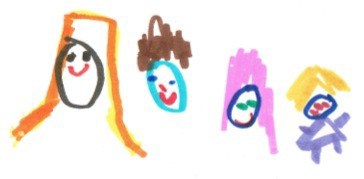Children Differ From Adults
Key points
- Children are developing - physically, emotionally and psychologically - illness impacts on them differently to adults.
- Children's arthritis is different to adult onset arthritis in many ways (e.g., genetics, immunology, clinical features, prognosis and outcomes).
- Early detection is essential to avoid long-term joint damage, disability and impact on psychosocial development.
- Normal differences in child development may mimic pathology.
- Communication with children takes patience and skill - young children may not verbalise symptoms and the parent/carer often provides the history. Nonetheless it is still important to engage with and include the child (as appropriate to age).
- A young child may not give any verbal history – this is common and the history is often obtained from the parent/carer.
- The history alone may not tell you where the problems are – there is need to examine all joints.
- Children may not verbalise pain and non-verbal clues are important (e.g., facial expression, withdrawal and non-usage of a limb).
- Normal musculoskeletal development is important to know as there are different normal ranges of joint movement, differences in leg alignment at different ages and motor milestones change with age. So you need to know what is normal to be able to identify what is abnormal.


